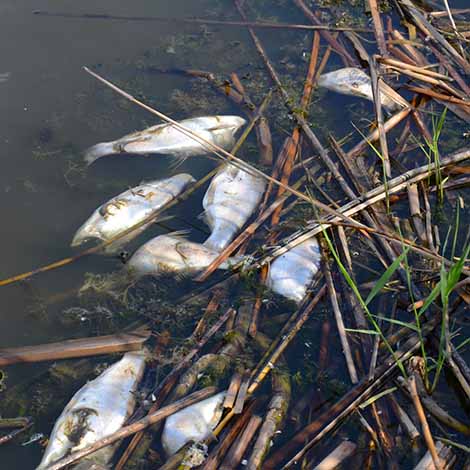A long cold winter could mean trouble for your fish.
When the ice on your pond finally melts this spring, you might discover that your fish and other aquatic life haven't survived the season. These winter fish kills occur when the ice prevents gas exchange and reduces the amount of dissolved oxygen in the water.
Michigan DNR fish production manager Gary Whelan says that shallow lakes, ponds and streams are particularly vulnerable to winterkill. "Winterkill begins with distressed fish gasping for air at holes in the ice and often ends with large numbers of dead fish that bloat as the water warms in early spring," he explains. "Dead fish and other aquatic life may appear fuzzy because of secondary infection by fungus, but the fungus was not the cause of death. The fish actually suffocated from a lack of dissolved oxygen from decaying plants and other dead aquatic animals under the ice."
Prevention
You can't bring your fish back to life, but you can prevent winterkill from happening in the future by aerating your pond year-round with an aeration system. Here's how it works:
- It reduces the amount of decomposing debris in the pond, encouraging the colonization of beneficial aerobic bacteria, which prevents muck and nutrient accumulation and maintains clear water.
- It keeps an air hole open in the ice, allowing harmful gases to escape while delivering fresh oxygen to your fish.
- It pumps even more fresh oxygen into the water via diffusers that sit on the bottom of the pond.
Unfortunate events like this are what makes regular pond maintenance so important. A little pond preparation can go a long way towards prevention.
